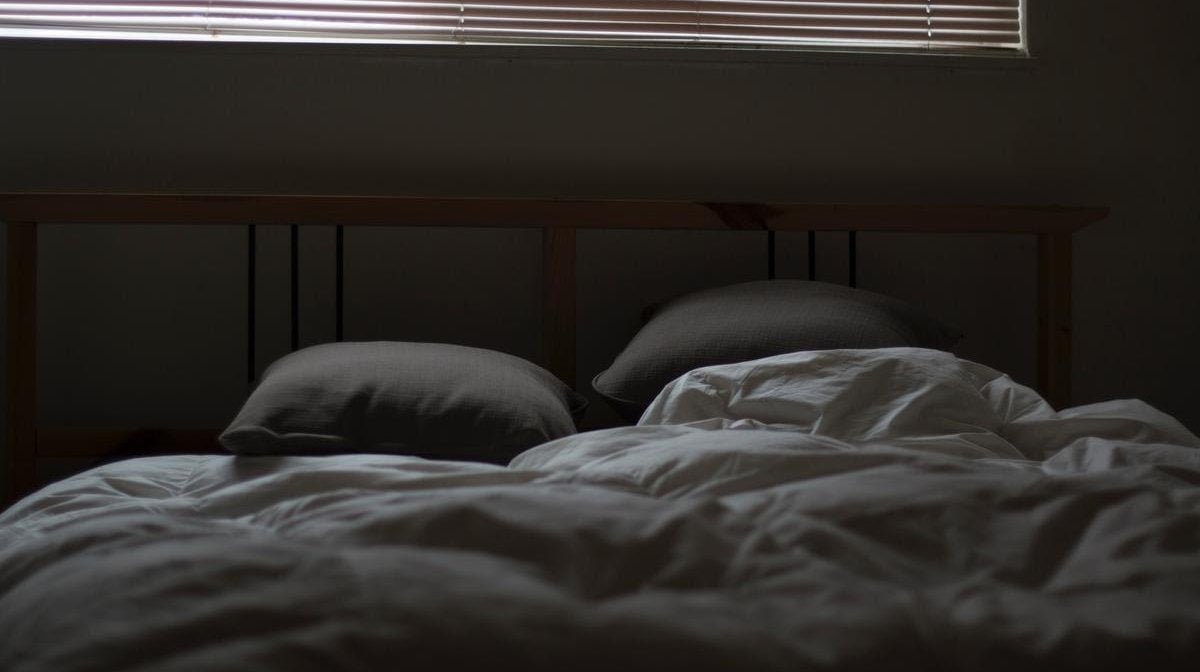
Wouldn’t we all love to get 9 hours of sleep every night? Unfortunately, for some of us, that isn’t possible. Some of us have what seems like endless nights of tossing and turning all night long, sometimes ending up at the opposite end of the bed.
This type of situation can affect our daily lives massively. However, there's no need to fear — these great tips will be sure to help out the hopeless sheep counters and wrigglers to sleep nice and sound:
1. Enjoy a Relaxing Bath/Shower
A nice bath or shower is not only good for the soul (and good hygiene) but can also be the ultimate way to relax your mind, muscles and joints.
It offers the perfect chance to sit or stand to take some time out of your day to relax. Offering the mind some peace and quiet to hopefully put you into a state of relaxation to help you sleep easy.
Not only that, it gives you a chance to cleanse and moisturise your skin — refreshing you ready for a full night’s sleep.
2. Reduce Blue Light Exposure
Blue light messes with the body’s melatonin production which controls your sleep-wake cycle.1 This means that overexposure to artificial blue light, such as TV screens and laptops may cause irregular sleep patterns.
- Limit screen time when you’re not working
- Download a blue light filter app for at night
- Try not to use lots of devices at bedtime
- Blink. Like lots. Blink loads
Go for regular eye tests1

3. Cut your Caffeine
Coffee lovers try not to worry too much. Caffeine is great for providing that boost of energy, whether it be for work or performance. However, if you’re consuming too much caffeine, then it won’t help you sleep easy.
A good and easy way to prevent this is by making sure you’re not consuming too much caffeine too late in the day.
We aren’t saying, "No more coffee", just be smarter with your timings. If you're a night owl when it comes to the gym, try our new pre-workout THE Pump with no added caffeine.
4. Have a sleep cycle
Ideally, you should set times for going to sleep and waking up at the same time every day, including weekends, in order for your body to find a natural rhythm to settle into a sleep cycle. This will reduce tiredness as you're working with your body clock.
Having a sleep cycle is so important. When we're sleep-deprived, we struggle with concentration and this can seriously impact our work. Multi-tasking is hard enough as it is — we don’t want to make it harder.
So, set alarms! Setting alarms for when to go to bed and when can be an easy way to start a sleep/wake cycle.
5. Meditate
Sometimes we can’t sleep simply because we have too much on our mind. In times like this, mediation is an amazing tool to use.
Mediation is the practice of relaxing and is done by controlling your breath in order to slow your heart rate. It also leads to a decrease in your blood pressure and stress hormones.2
This meditation exercise is an excellent introduction to meditation techniques:
1. Sit or lie comfortably. You may even want to invest in a meditation chair or cushion.
2. Close your eyes.
3. Try not to focus on breathing let it come naturally. Obviously don’t forget to breathe.
4. Focus your attention on the breath and on how the body moves with each inhalation and exhalation. Notice the movement of your body as you breathe. Observe your chest, shoulders, rib cage, and belly. Simply focus your attention on your breath without controlling its pace or intensity. If your mind wanders, return your focus back to your breathing.
Take home message
So, for better sleep, it’s all about trying to relaxing and winding down. We all would love this after long day’s work, so give it a go and see what works best for you whether that be meditation or having a routine sleeping pattern.

Isaac is a brand communications apprentice with a passion for all things fitness. He has always had a passion for football, playing at a high youth level and enjoying 4 years of competitive kickboxing. Over recent years Isaac has dedicated himself to continually improving in the gym, enjoying both functional fitness and bodybuilding styles of workouts. He strongly believes that you should always have balance and likes to spend his time at the weekends socialising with his friends.
- Gooley, J. J., Chamberlain, K., Smith, K. A., Khalsa, S. B. S., Rajaratnam, S. M., Van Reen, E., … & Lockley, S. W. (2011). Exposure to room light before bedtime suppresses melatonin onset and shortens melatonin duration in humans. The Journal of Clinical Endocrinology & Metabolism, 96(3), E463-E472.
- Davis, J. L. (2005). Meditation balances the body’s systems. Retrieved December 23, 2011.
References:




